As the novel coronavirus spread this spring, Virginia Tech alumni wasted no time finding ways to put Ut Prosim (That I May Serve) into action. From fashioning face masks to serving on the front lines of the health professions, our alums worked hard to offer support and help curb the spread.
This story highlights some of the simple and extraordinary contributions of Virginia Tech graduates across the nation and the globe. These individuals represent the resilience, character, and service that are central to true Hokie Spirit.
Although it would be impossible to quantify the names and actions of everyone who stepped up to help, we appreciate the efforts of each and every alum who generously gave of their time, talent, and resources to keep our communities safe and healthy.
Thank you, Hokies.
Joe DeSimone Ph.D. ’90
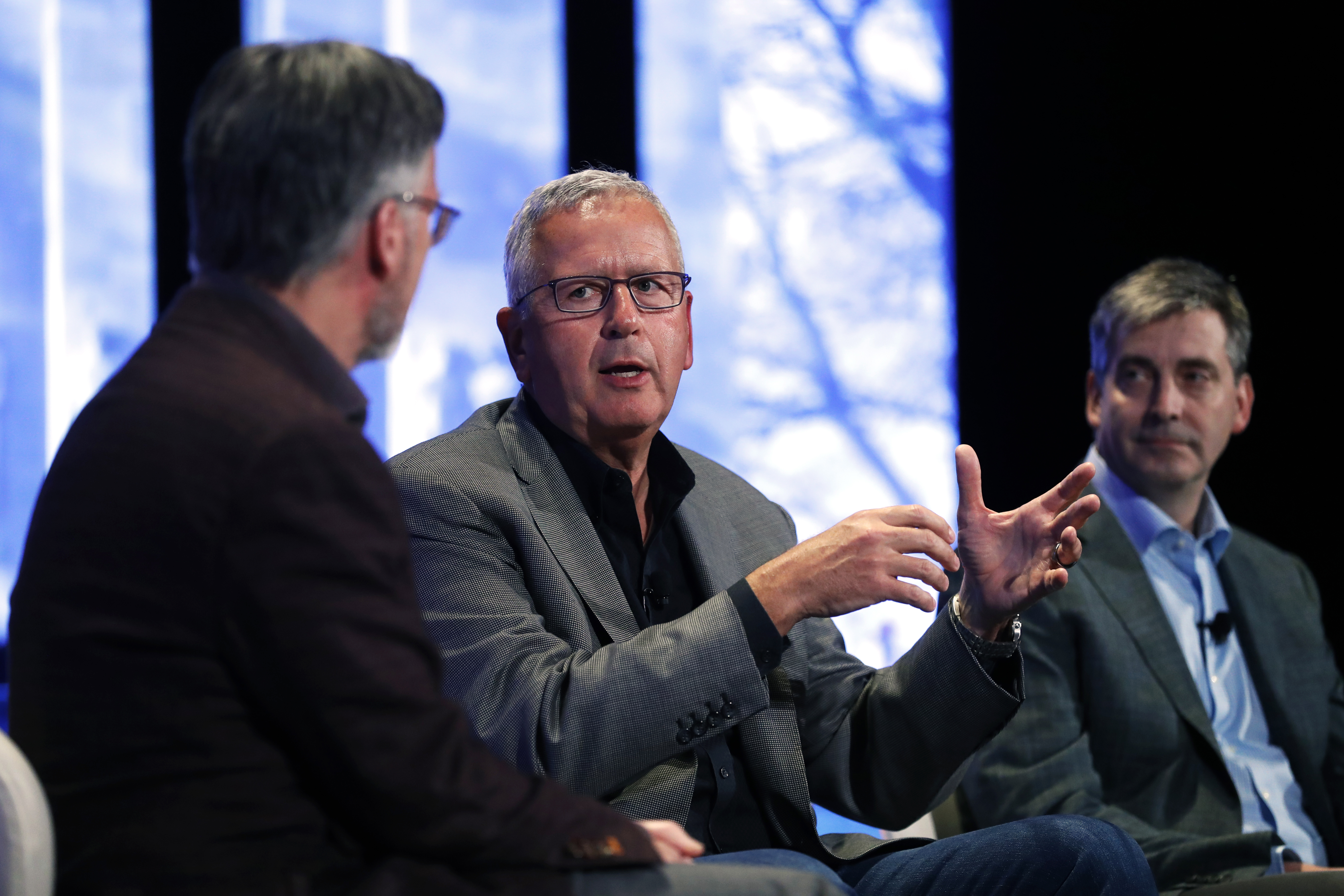
Joe DeSimone
Alumnus Joseph DeSimone’s California-based business took a proactive approach to a problem that emerged as a result of the pandemic—a shortage of nasopharyngeal or upper nasal cavity testing swabs and face shields for health care workers.
The company, Carbon, a digital manufacturer that uses rapid 3D technology, designed test swabs made with a material typically used in dental and orthodontic products, such as nightguards.
It also produced more than 350,000 face shields using both a dental resin or a polyurethane material often found in the midsole of an Adidas shoe.
Through Carbon’s work with Resolution Medical, a medical device company, more than a half million test swabs have been shipped to hospitals around the country.
Chris Kopec ’00
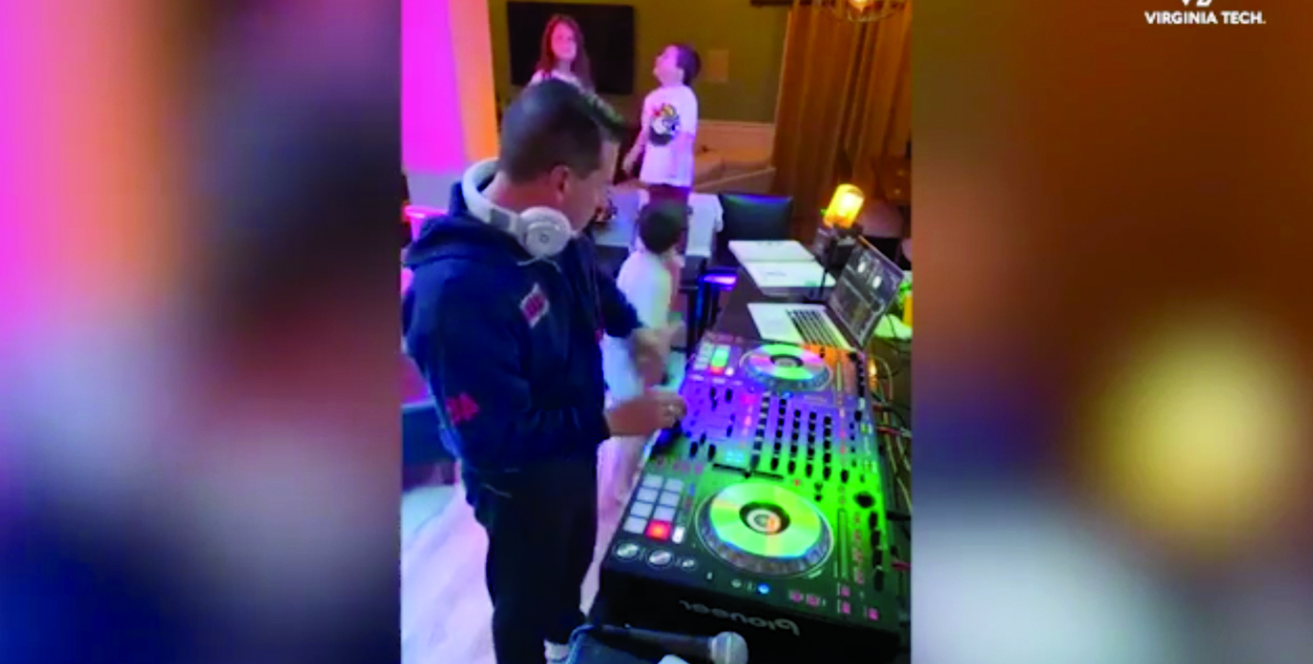
Chris Kopec
To escape the tedium of the shutdown, Chris Kopec decided to throw his family a dance party to lift their spirits. He hooked up his DJ gear and headed to Facebook Live, expecting to get 20-50 viewers, but soon there were over 20,000 people tuning in to join the fun. Based on the success of the first event, Kopec recognized the opportunity to use his family dance parties for something more than just fun.
Kopec transformed the virtual events into fundraisers for first responders and people who had been affected by the virus. DJ Kopec’s first digital tip jar raised enough funds for 200 pizzas from a struggling local restaurant, which were delivered to fire and police stations in his community.
As his viewership grew, Chris received thousands of messages, videos, and photos of people whose spirits were lifted by his basement antics. Over time, the viral videos reached millions, inspiring support from various corporations. Holly Poultry, for example, pledged to donate a pound of chicken, up to 60,000 pounds, to the United Way of Central Maryland for every viewer during a March 28 event. To date, Kopec’s dance parties have raised more than $1 million.
Elsa Murano ’90
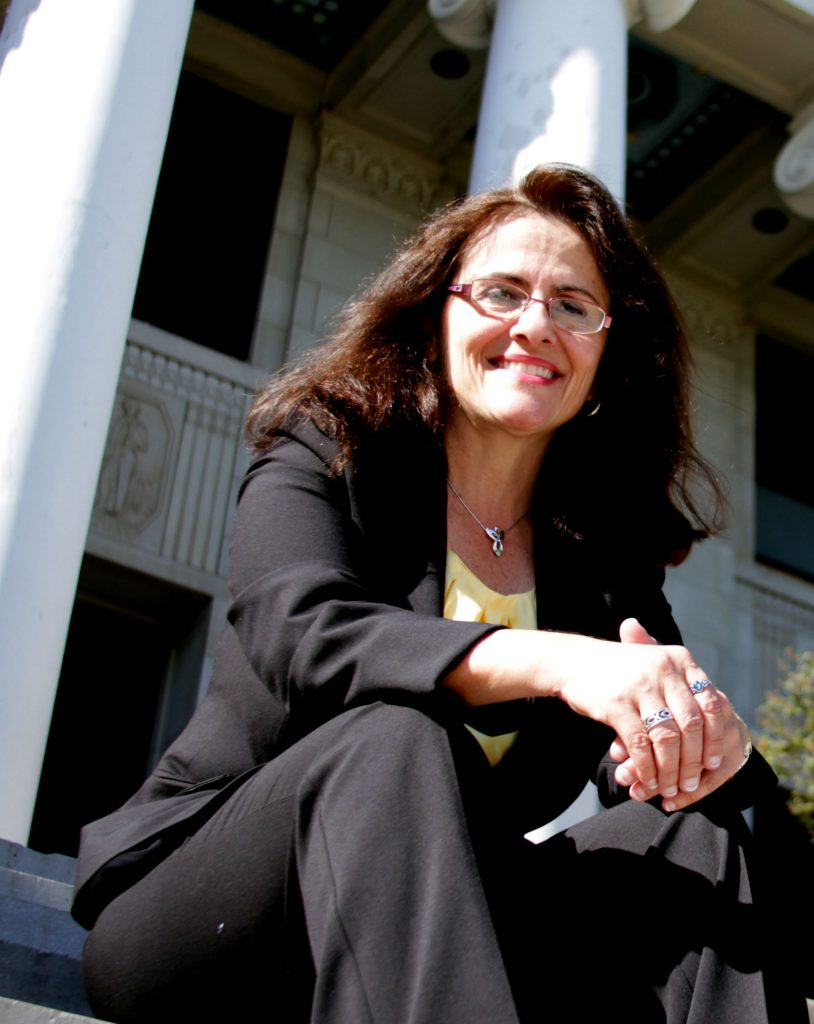
Elsa Murano
Virginia Tech Department of Food Science and Technology alumna Elsa Murano was selected as the sole U.S. representative on the newly formed Food Security of the Americas Advisory Council, which was established to address the mounting food supply issues resulting from the COVID-19 pandemic.
The Food Security of the Americas Advisory Council is made up of representatives from eight countries, including Costa Rica, Barbados, Colombia, Mexico, Argentina, Uruguay, Brazil, and the United States, each specializing in varying areas of agriculture and food policy.
Murano is currently the director of the Norman Borlaug Institute for International Agriculture at Texas A&M University.
Camille Schrier ’18
On Dec. 19, 2019, Camille Schrier was crowned the 99th Miss America in Uncasville, Connecticut, making history as the first contestant to complete an on-stage chemistry experiment during the talent portion of the competition. In March, it became clear that her reign would include additional milestones. Schrier would become the 99th and 100th Miss America, as the 2020 event was suspended due to the pandemic.
Schrier’s reign has been anything but traditional, which she admits is pretty “on-brand” for her. She has continued to advocate for young girls with STEM interests though virtual science lessons. In addition, Schrier has tapped into YouTube to demonstrate “Elephant Toothpaste,” how the process of diffusion works, and the science of floral arrangements.
“If I can come in virtually and do some activities with them, that's an awesome opportunity for me to actually reach more kids than what I would be able to do in person,” Schrier said.
Rick Devens ’06
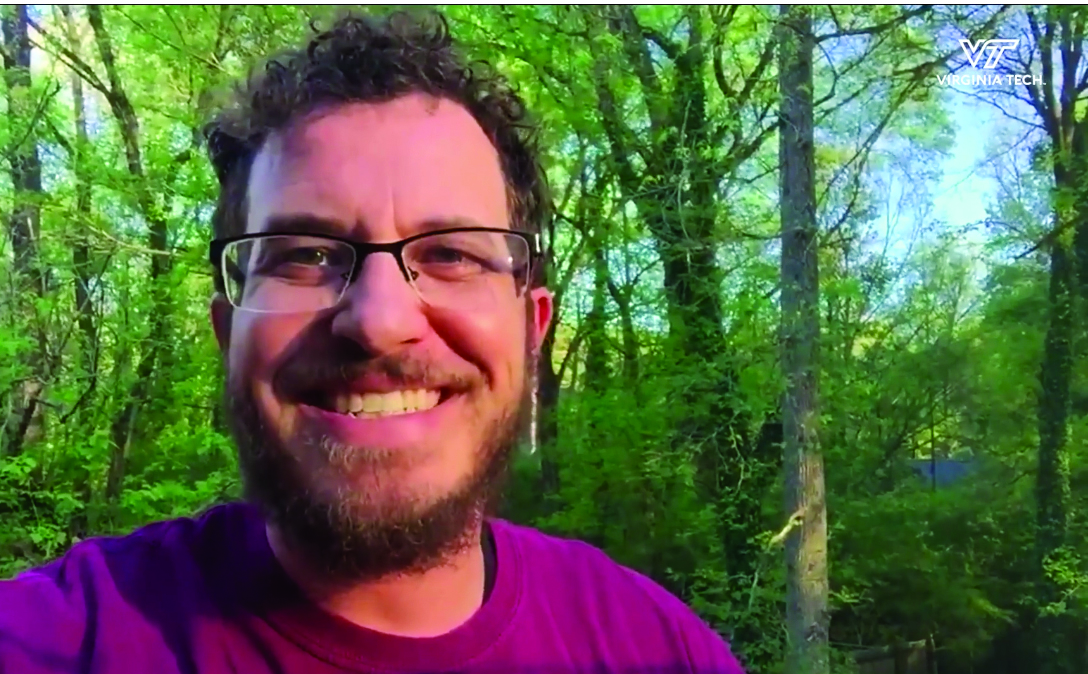
Rick Devens
Rick Devens was one of 18 people selected to take part in the most recent iteration of CBS’ Emmy Award-winning reality television competition, “Survivor: Edge of Extinction.” Now in its 38th season, the show channels participants, also known as castaways, through a series of physical, mental, and social challenges, which are compounded by the emotional weight of living in a remote, exotic location. The lone “Survivor” of this gauntlet earns a $1 million prize.
A graduate of Blacksburg High School, Devens studied communications at Virginia Tech and currently works as a newscaster in Macon, Georgia. Entering the final month of the show, he fought his way back into the game by winning a hotly contested challenge after he had been voted off by his fellow contestants and banished to the “Edge of Extinction.” His time at Virginia Tech contributed to his experience and success on the show.
This spring, Devens took to social media, capitalizing on his recent celebrity to offer support and encouragement for Virginia Tech students in their adjustment to remote learning and the loss of their campus experiences, including graduation.
Debie McDonald ’79
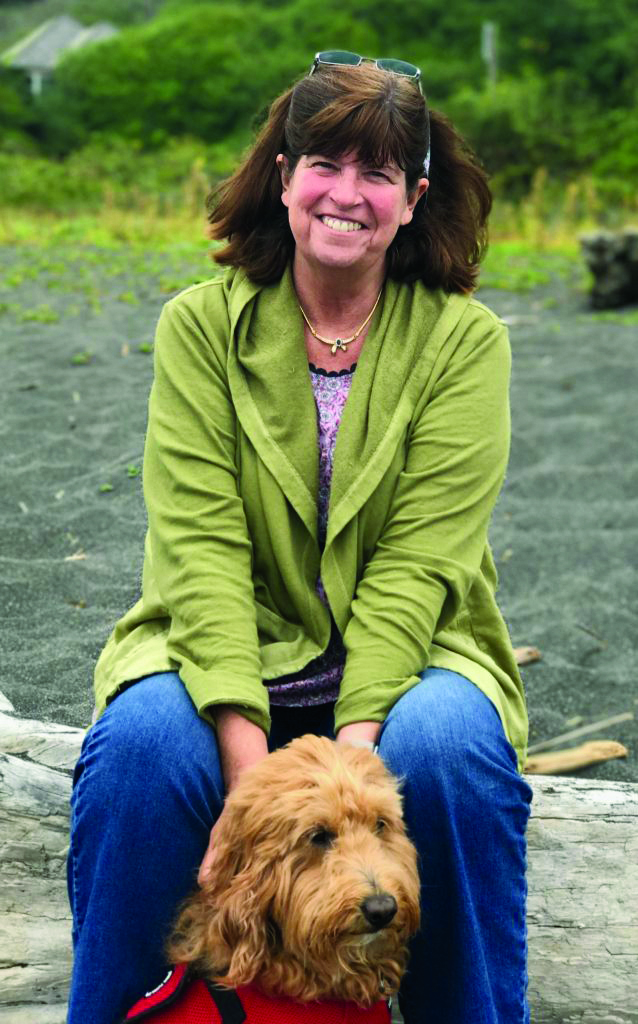
Debie McDonald
On St. Patrick’s Day, Debie McDonald, a patient advocate, learned that her local hospital, AdventHealth Celebration, expected to run out of critical PPE and cleaning supplies. McDonald jumped into action and secured items, including goggles and bleach, and organized a fleet of volunteers willing to craft cloth facial masks.
To date, the group she created, “Sewing for Life,” has donated more than 1,000 cloth masks to churches, a community outreach program for low-income families, essential workforce members, and medical professionals. So far, more than 750 of the masks have gone to the hospital, where they serve as an emergency backup for caregivers during the pandemic. McDonald said the sewing group, which includes several furloughed costume creators from the nearby amusement parks, continues to manage requests for masks from both individuals and groups on a daily basis.
John Ross ’99
John Ross realized that the pandemic would affect not only universities, but also K—12 schools. As an instructional design consultant and author, he knew his expertise could help others. Ross joined Jeff Mann and Jane Wemhoener, faculty members in the Virginia Tech Department of English and co-leaders of an Iceland study abroad program, to organize safe travel home for students prior to the closure of international borders. Ross helped the faculty find effective ways to replicate their book-discussion-based course in a virtual environment.
As a volunteer, Ross is co-leading an online session for Dell Technologies and conducting educational technology planning and implementation. Dell is a large contributor of technology for schools, but does not offer training. When the coronavirus pandemic began, Dell’s education department wanted to demonstrate how its services could benefit educators by working through education contractors to offer a series of free webinars. Ross agreed to help. His contribution is focused on how to develop community online.
PanJammers
To honor the Virginia Tech Class of 2020, the PanJammers, an award-winning steel drum orchestra based in Blacksburg, Virginia, recorded a virtual version of the traditional graduation song, "Pomp and Circumstance,” which was originally composed by Sir Edward Elgar. The Blacksburg recording was organized by Sheryl Ball, an economics professor in the College of Science.
More than half of PanJammers have Virginia Tech affiliations, either via employment or as alumni. The 17 players who took part in the video donned either academic regalia or maroon and orange while recording their performances.
The finished video ran roughly three minutes and was shared online via the university’s social media platforms and played during the Department of Economics’ virtual commencement celebration.
Eric Parlette ’94
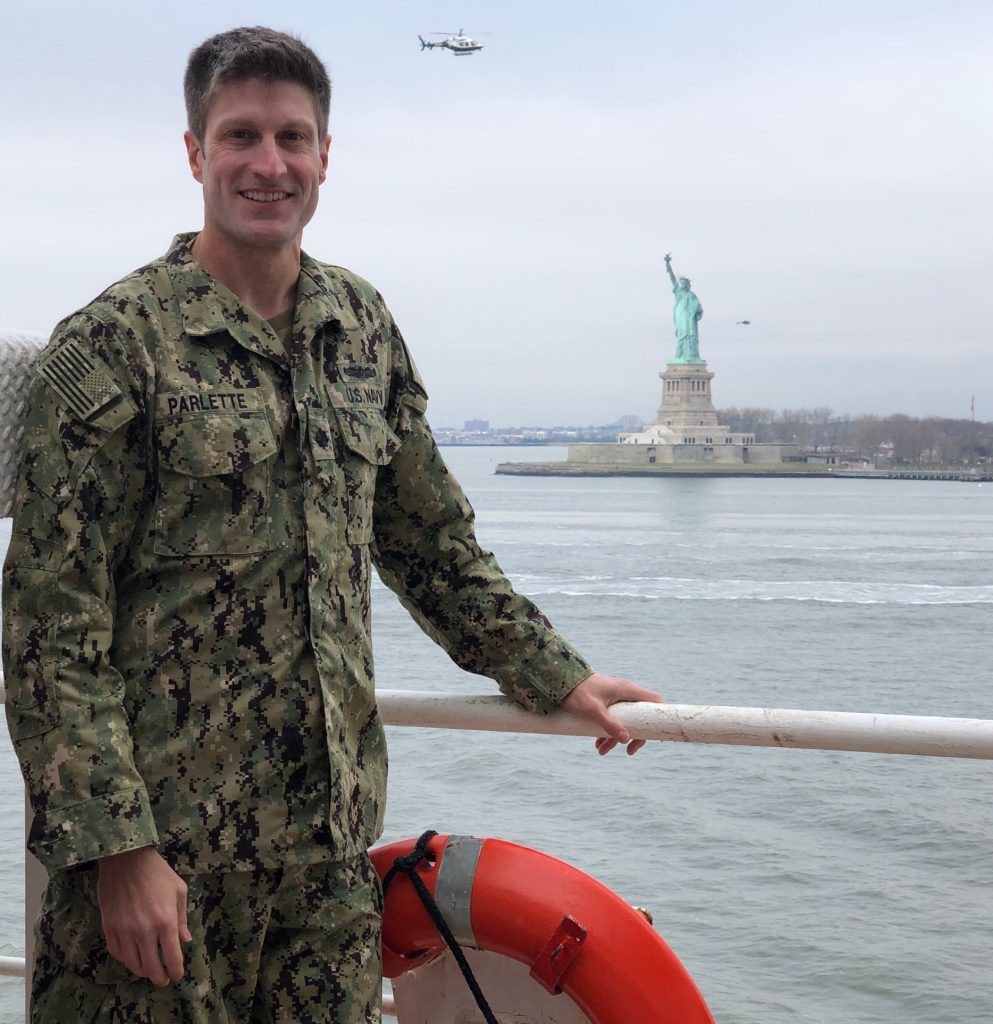
Eric Parlette
Eric Parlette, a Navy reservist and doctor in the Medical Operations Center on the USNS Comfort, quickly responded when summoned to the front lines of the battle against COVID-19. Parlette and other crew members dropped anchor near New York City on March 30 to aid the city’s hospitals, which were overwhelmed with patients infected with the coronavirus. The crew spent the next month caring for various types of patients, including those who had been diagnosed with COVID-19.
While on the Comfort, Parlette served as one of four physicians in the Medical Operations Center, which was responsible for communications with surrounding medical facilities and with facilitating logistics, admissions, and discharges of patients on and off the ship. From the dock in Manhattan, they could see the tops of the buildings in Times Square and feel the eeriness of the city’s situation. Parlette said that his sense of duty was cultivated in Blacksburg.
“It was fundamental, the culture at Tech, revolving around the motto Ut Prosim. I think the mindset of service comes with a sense of humility, which is incredibly important and produces the best kind of leaders,” Parlette said.
Justin Graves ’12, M.A.’14
Motivational speaker Justin Graves hopped on YouTube on March 30 to share a little positivity as the reality of COVID-19 reached the United States and Virginia Tech. He encouraged people to “do their part,” asking viewers to consider people like him as they made choices about staying at home and adapting to infection control recommendations. Graves is immunocompromised, meaning that, for him, the dangers of the virus are far more severe than they might be for his healthy friends and neighbors.
Graves thanked Hokies for staying home, staying connected, and practicing social distancing. “Thank you for being a part of the best community in the world: the Virginia Tech community,” he concluded. “Go Hokies!”
Tyrod Taylor ’10
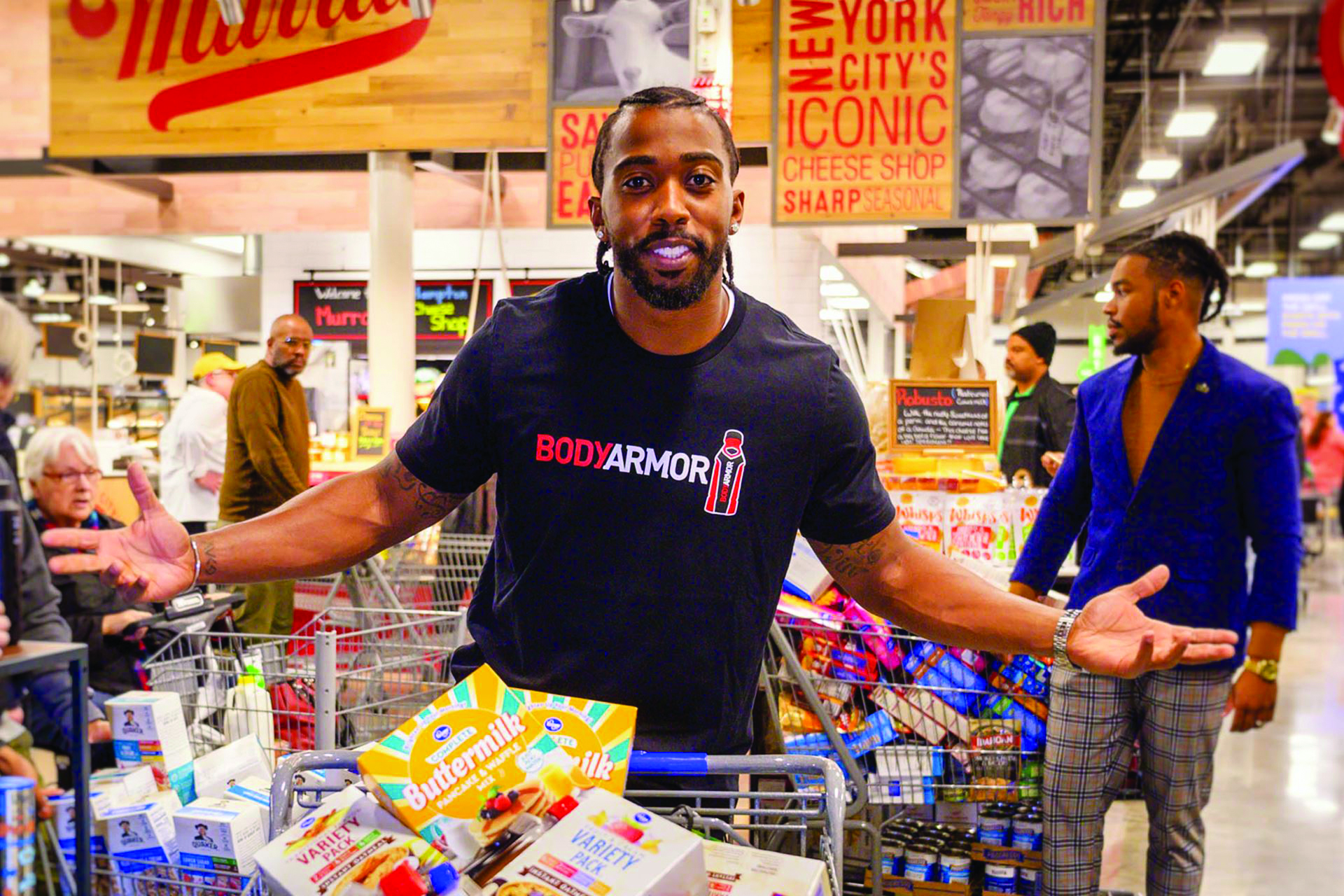
Tyrod Taylor
Los Angeles Chargers quarterback Tyrod Taylor donated $25,000 to the Virginia Peninsula Foodbank in his hometown, Hampton, Virginia. Taylor’s support provided a truckload of fresh food for distribution to individuals impacted by the COVID-19 crisis.
Earlier in 2020, the former Virginia Tech athlete participated in a shopping spree connected to the grand opening of a new Kroger location in Hampton to help stock the shelves at the foodbank.
Edmunds brothers
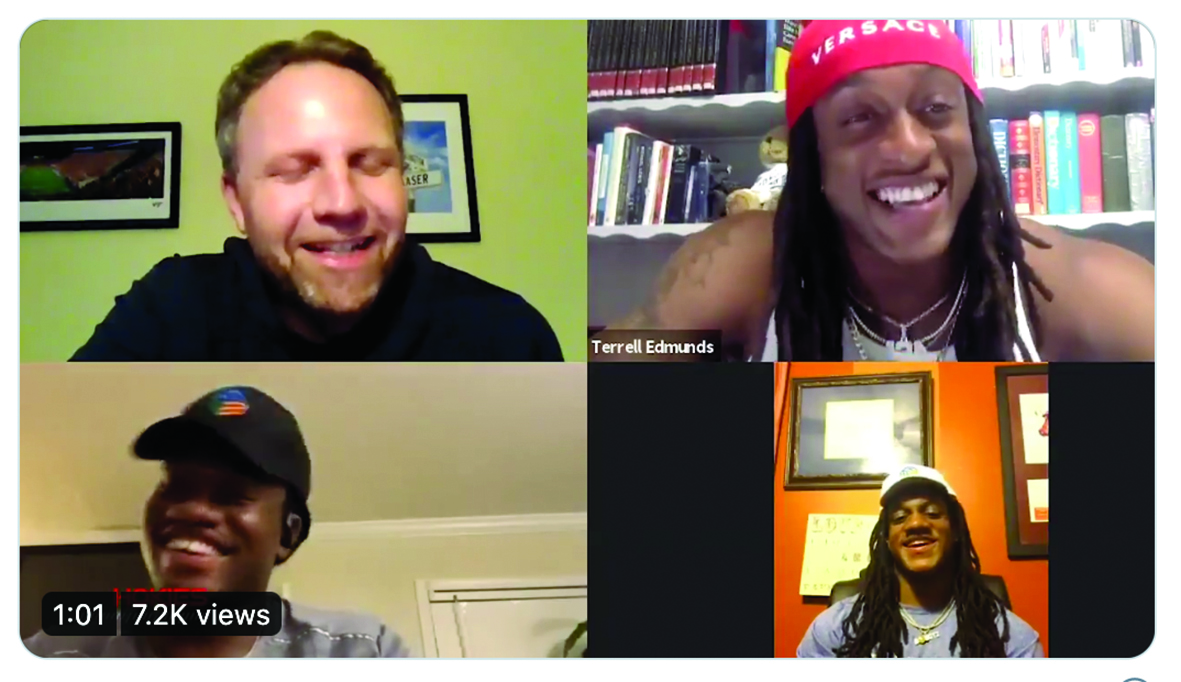
Edmunds brothers
Terrell ’17, Trey ’15, and Tremaine all played football at Dan River High School and then Virginia Tech. They’re all now in the NFL. On March 25, the trio returned to Danville to distribute nearly 1,000 lunches to their community following the grim announcement of the massive spread of coronavirus in the United States. The Drive-Thru Service was sponsored by the Danville chapter of The Links Inc., a national service organization.
“It’s everything,” Terrell said. “Just putting smiles on people’s faces coming by to grab some lunch and enjoying a good time through all the bad that’s going on in the world. Just knowing it’s a tough time, but we’re tougher people and we’re going to get through it. It’s amazing being out here, helping out, putting it on with everyone, seeing big smiles around the city.”
Keegan Czesak ’18
Agricultural technology and management major Keegan Czesak was tasked with creating a business plan for a farm as his last project before graduating from Virginia Tech. The project represented a culmination of everything he learned about agriculture as a student and over the many years he spent working at his grandparent's farm. Following commencement, Czesak continued to refine his plan, which ultimately resulted in the development of an independent agricultural business, Eno River Farm.
Czesak was just launching a four-acre strawberry field on St. Mary’s Road, north of Hillsborough, North Carolina, when COVID-19 hit. The young entrepreneur was forced to implement a pandemic plan to keep his dream alive and ensure the health and safety of customers and staff. But Czesak took the efforts a step farther, donating around 70 gallons of his farm’s homemade ice cream along with freshly picked berries to area food pantries.
Eno River remains open today, enforcing guidelines that help ensure customer safety. Clients wash their hands or use hand sanitizer before picking and use brand-new buckets to collect their harvests. The farm also limits the number of people in the rows and encourages clients to maintain the 6 to 10 feet recommended for physical distancing. Masks are encouraged.
Tori Alley ’19 and Carley Pavan ’18
Tori Alley and Carley Pavan teach agriculture at Pulaski County High School, Pulaski, Virginia, but their work extends far beyond the classroom. The pair helps manage a school-based horticulture enterprise known as Pat’s Patch. Each May, Pat’s Patch holds a community plant sale, but the commonwealth’s shelter-in-place order rendered the 2020 event impossible.
Alley and Pavan didn’t want to see their students’ work go to waste. Alley created a Facebook group and invited community members to join. The teachers posted pictures of the plants, instructions for care, and suggested amounts for donation. The pair, who also provided door-to-door delivery of the purchases, sold out of most offerings and raised $2,500 for the school.
Additionally, the Tech alums took responsibility for temporarily rehoming animals from the school’s small animal care program, ranging from a bearded dragon to a potbellied pig named Ellie May.
Transitioning to an online learning format in Pulaski County required more logistics than in more urban regions across the state. Many of the students do not have internet access, so learning has become almost entirely individualized. Although they were new to their roles, the rookie teachers rose to the challenge. Pavan even shared her cell phone number with students, encouraging them to give her a call or send a text to prove they had completed the work. To meet their class requirements, students uploaded videos demonstrating lawn care techniques or promoting tractor safety and sent pictures of home-grown onions, cabbage, and even corn ready to transplant.
Jack ’12 and Alley ’13 DuFour
Jack and Alley DuFour, of Blacksburg, Virginia, founded Taaluma Totes in 2012. The company has sold thousands of bags crafted from unique international and domestic fabrics. Manufactured by a nonprofit organization in Southwest Virginia that supports jobs for dozens of workers with disabilities, a portion of the profits from the sale of the bags assists people living in the communities where the fabric originated.
Like most companies, Taaluma Totes realized it would need to pivot its business model when the pandemic hit. The DuFour original operation was deemed “unessential,” so they were forced to shut down almost immediately but were met with requests from their clientele to shift to manufacturing masks rather than totes. By repurposing materials, they were able to meet these requests and also shipped masks to hospitals all across the country.
“Our goal is to provide as much help as we can during this time,” said the founders. “We assume with the combined effort of other individuals and companies we will be able to make enough PPE equipment where there is no longer a shortage. When we started, we had no idea how long this would last. We are hoping for the best and thinking potentially sometime over the summer we may get back to regular tote manufacturing. But we are ready if that doesn't occur.”
Brian Connor ’19
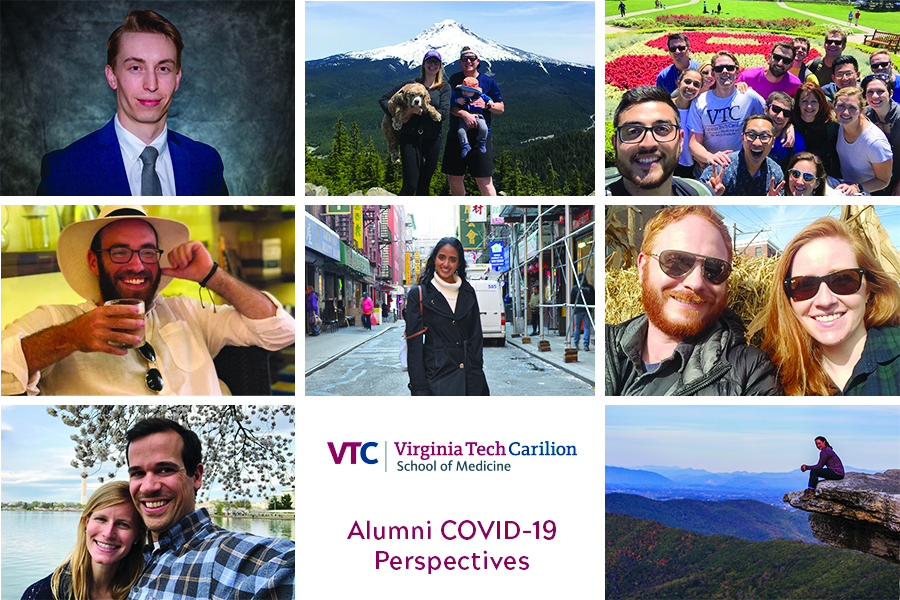
Brian Connor
Brian Connor, an internal medicine resident at the University of Washington in Seattle, Washington, found himself on the front lines of the pandemic in its earliest days. (The first confirmed case of COVID-19 in the U.S. was diagnosed in Washington state.)
“Being in one of the initial ‘hot-spots’ for the pandemic in this country certainly came with its share of anxiety—personally, professionally, and socially,” Connor said.
Some of Connor’s residency learning experiences had to be canceled, and staffing shifted to acute and intensive care units.
“At first, it was disappointing,” Connor said. “But it was inspiring how tirelessly and selflessly my co-residents volunteered to staff some of the most affected and time-consuming services, including the MICU. The sense of camaraderie and selflessness was pervasive and infectious. The desire to serve the community and support one another outmatched personal trepidation.”
Andrew Moore ’14
Andrew Moore is an attending emergency medicine physician finishing his second year of a research fellowship at the Center for Policy and Research at Oregon Health and Science University. Oregon also saw some of the nation’s earliest confirmed cases, beginning in late February.
“One of the earlier cases was a teacher, and some of my colleagues had children that went to that school, so their children had to monitor symptoms for a couple of weeks,” Moore said. “So, when it hit here, it hit really close to home for a lot of the ER physicians.”
Moore said the community responded quickly with social distancing, and his health system prepared for the worst, with modified operations, cancelation of elective surgeries, and allowing only essential personnel on site.
Jonathan Hootman ’18
Jonathan Hootman is an emergency medicine resident at Stanford University, where he works in three different emergency departments in Santa Clara County, California, which had its first confirmed case on Jan. 31.
“I struggle with the physician-as-hero mythos being perpetuated on social media. I don’t feel like a hero; I just feel like I’m doing my job,” Hootman said.
Hootman’s stress management strategies included hiking with his wife and dogs; binge watching favorite TV shows, including “Curb Your Enthusiasm”; and cultivating an indoor plant collection.
Jennifer McQuiston D.V.M. ’97 and Caitlin Cossaboom ’10, M.P.H. ’14, D.V.M. ’15, Ph.D. ’15
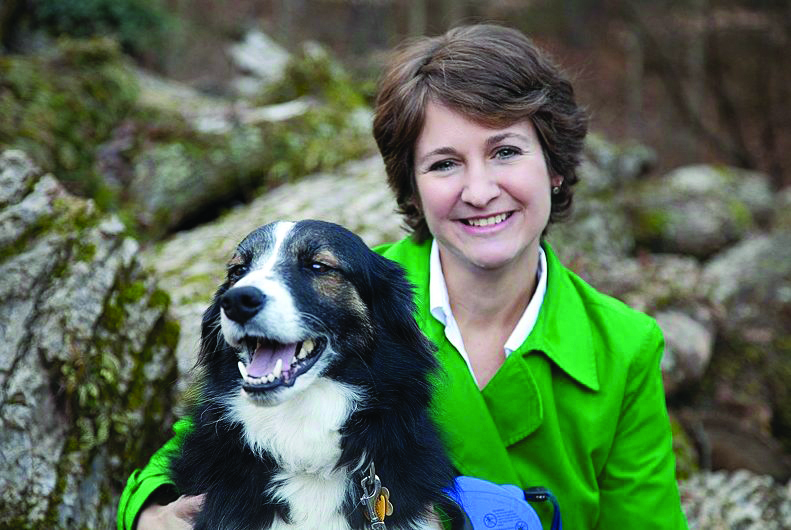
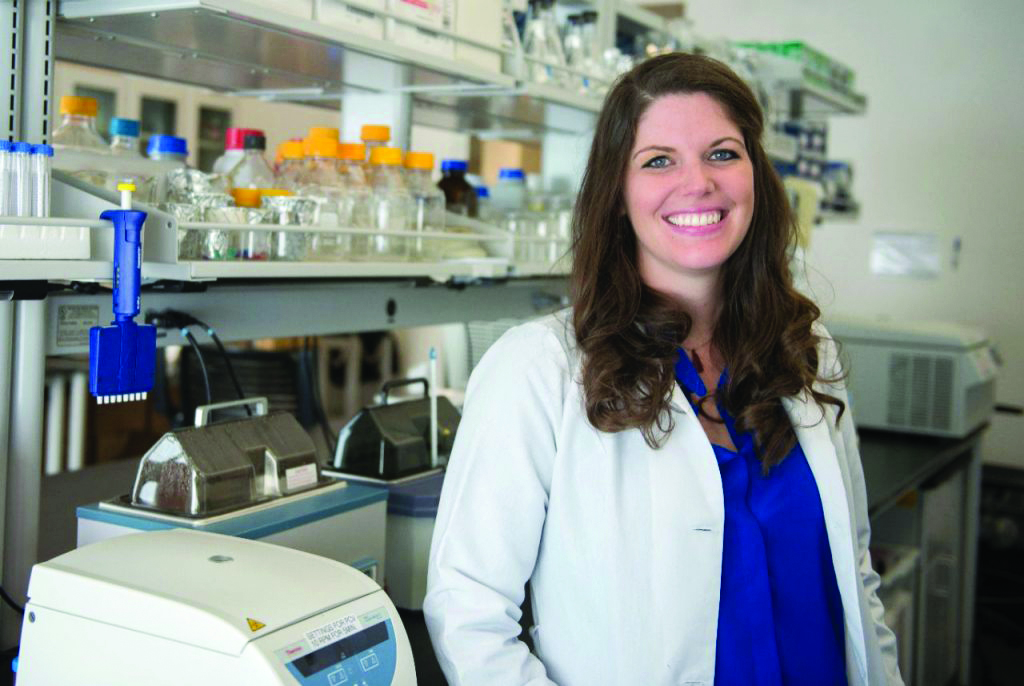
Jennifer McQuiston (top) and Caitlin Cossaboom
On Feb. 1, Jennifer McQuiston, deputy director, Division of High Consequence Pathogens and Pathology, National Center for Emerging and Zoonotic Infectious Diseases, was called to serve the Centers for Disease Control in the field. McQuiston was deployed to Lackland Air Force Base in Texas to oversee a team coordinating the repatriation of U.S. citizens being evacuated from Wuhan, China. The team was responsible for safely managing the personal and medical needs of 91 Americans who would be quarantined at the base for at least 14 days. Later, additional staff added to manage the volume of the work included Virginia-Maryland grad Caitlin Cossaboom.
Members of the team coordinated access to meals, monitored health, and managed all other aspects of care for those quarantined. Of the 91citizens, three became ill, but only one tested positive for COVID-19.
Upon returning to the CDC from the field, McQuiston helped coordinate a field team deployed to respond to newly identified community transmission efforts in California. The from March-May, McQuiston served as principal deputy incident manager for the CDC’s COVID-19 response.
“I describe myself in this role as being like a border collie herding sheep,” said McQuiston. In that role, she worked to coordinate the tasks across various scientific areas and other COVID-related work to ensure goals are achieved and to avoid duplication of services and maximize efficiency. McQuiston noted that the CDC response was an “all hands on deck” effort, which she anticipated would continue until there is a vaccine.
Betsy Schroeder D.V.M. ’16, M.P.H. ’16
Betsy Schroeder, the state public health veterinarian at the Pennsylvania Department of Health, has been involved as a co-operations section chief with Pennsylvania’s Incident Command System (ICS) during the pandemic. Schroeder has participated in site visits to food processing facilities alongside a CDC strike team, presented on veterinary practice guidelines, communicated with hospitals regarding shipments of remdesivir, helped coordinate plans for universal testing in long-term-care facilities, and pushed out evolving guidance from the CDC, among other responsibilities.
“It’s something new every single day,” said Schroeder. “It’s both stimulating and exhausting at the same time, and this is the most important work I’ll probably ever do in my career.”
Rising junior Rosie Hutchinson, an intern with Virginia Tech Magazine, curated the information for this story.